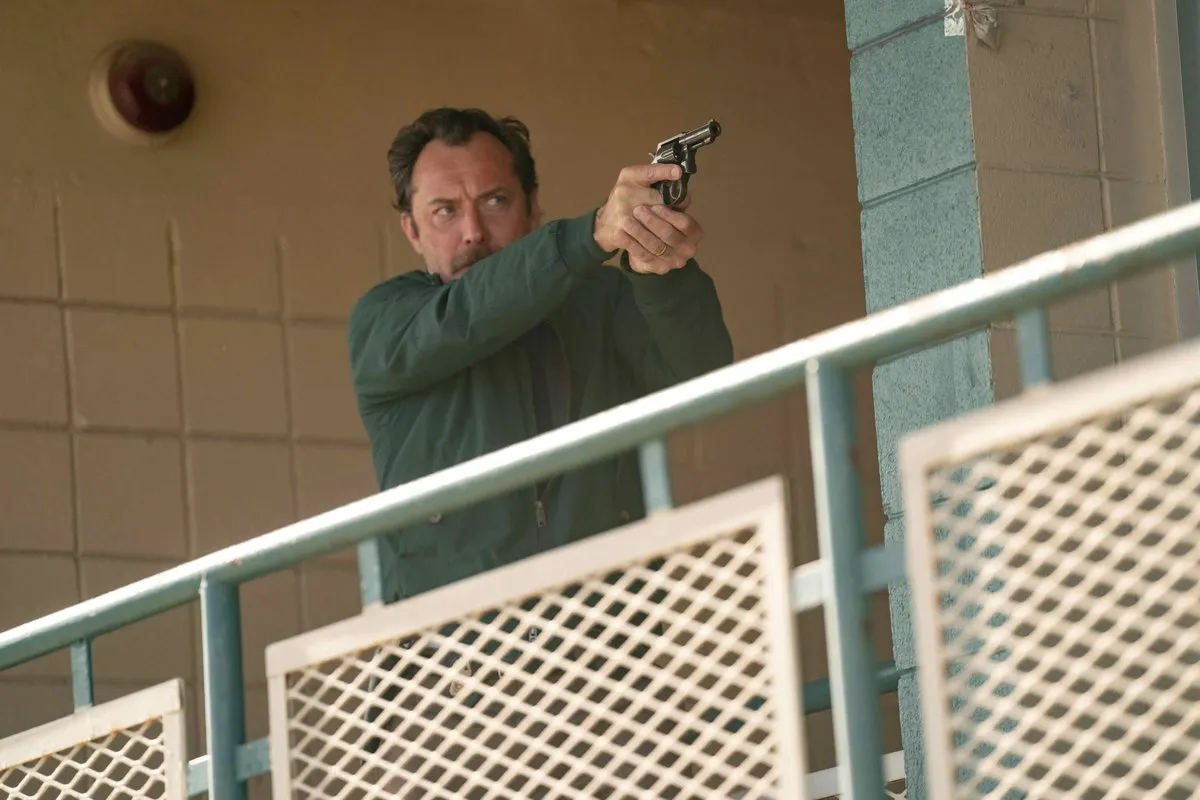The Silent Brotherhood: A Grim Dive into White Supremacy
“The Silent Brotherhood” might not be the biggest surprise at the Venice Film Festival, but it stands out for its focus and coherence, especially compared to the somewhat disjointed films in the main competition. Australian director Justin Kurzel revisits themes of masculinity, the search for ideals, and role models, drawing from real-life events. Like his previous works such as “Snowtown,” “True History of the Kelly Gang,” and “Nitram,” “The Brotherhood” carries a strong social message while succeeding as a dynamic detective story. Kurzel’s consistent theme throughout his filmography is a clear depiction of the ever-present danger: the accessibility of firearms.
This testosterone-fueled drama is an adaptation of Kevin Flynn and Gary Gerhardt’s non-fiction book “The Silent Brotherhood” about the white supremacist group “The Order” in the 1980s. The plot is predictable, yet compelling. FBI agent Terry Hask (Jude Law), reminiscent of Colin Farrell’s character in “True Detective,” arrives in the Pacific Northwest to connect a series of crimes fueled by intolerance. Under the local sheriff’s nose, radical extremists from a “church for whites” are building an army, gaining followers and weapons, resorting to terror as their primary tool for “negotiation” and armed robbery to fill their coffers. The chauvinism, racism, and antisemitism of these determined men rival the KKK, especially under the charismatic leadership of Bob Mathews (Nicholas Hoult). Hask enlists the help of a young local police officer, Jamie Bowen (Tye Sheridan), and gains cautious support from FBI agent and former partner, Joanne Carney (Jurnee Smollett).

Jude Law as Terry Hask in “The Silent Brotherhood”
Echoes of Noir and the Weight of Justice
Stylistically and rhythmically, “The Brotherhood” echoes iconic investigative dramas featuring troubled men with a natural inclination for justice, from “True Detective” to “Wind River.” Kurzel proves himself a steady and reliable director, avoiding missteps and unnecessary pauses. The vast landscapes and silent mountain peaks that witness everything, the cramped offices and lengthy briefings that lead to dead ends, the emotional breakdowns and gunfights – the 80s are brought to life, as is the allure of investigations that risk everything. Law and Sheridan form a memorable duo, with one inevitably adopting the other’s habits, despite warnings against obsession.
A Society Left Behind
Beyond the escalating national hatred, the film highlights a persistent issue: the state has left its citizens in poverty and a mire of nonexistent opportunities. Abandoned and marginalized, they band together to find unity and create a sense of shared purpose. As before, Kurzel avoids simplistic demonization or portraying evil as one-dimensional. The members of this group have their own understanding of brotherhood and family sanctity. While the next stage of tribal unity might resemble the rednecks from “The Texas Chainsaw Massacre,” these neo-Nazis are one step away from primal behavior, held together by the iron discipline that fuels any radical ideology. At the same time, Kurzel’s cinematic language is uncompromising in its depiction of violence: death and murder are shown starkly, brutally, without glorifying action or injury.
Missed Potential
Despite effective direction, Zak Baylin’s screenplay remains too concise, perhaps even lacking in detail. The agents lack the space to fully develop as characters with compelling backstories. Despite the dynamic energy between Law and Sheridan, the cops’ biographies and principles remain somewhat vague. However, these gaps do not detract from the core message: “The Brotherhood” clearly articulates a warning to Americans before the upcoming elections about the side effects of White Supremacy in any era. Had the film been more complex and multi-layered, it could have become a cult classic, analyzed and dissected for its psychological insights. As it stands, viewers can expect a grim detective story from Justin Kurzel. Which is not a small feat, especially considering the competition at the 2024 Venice Film Festival.